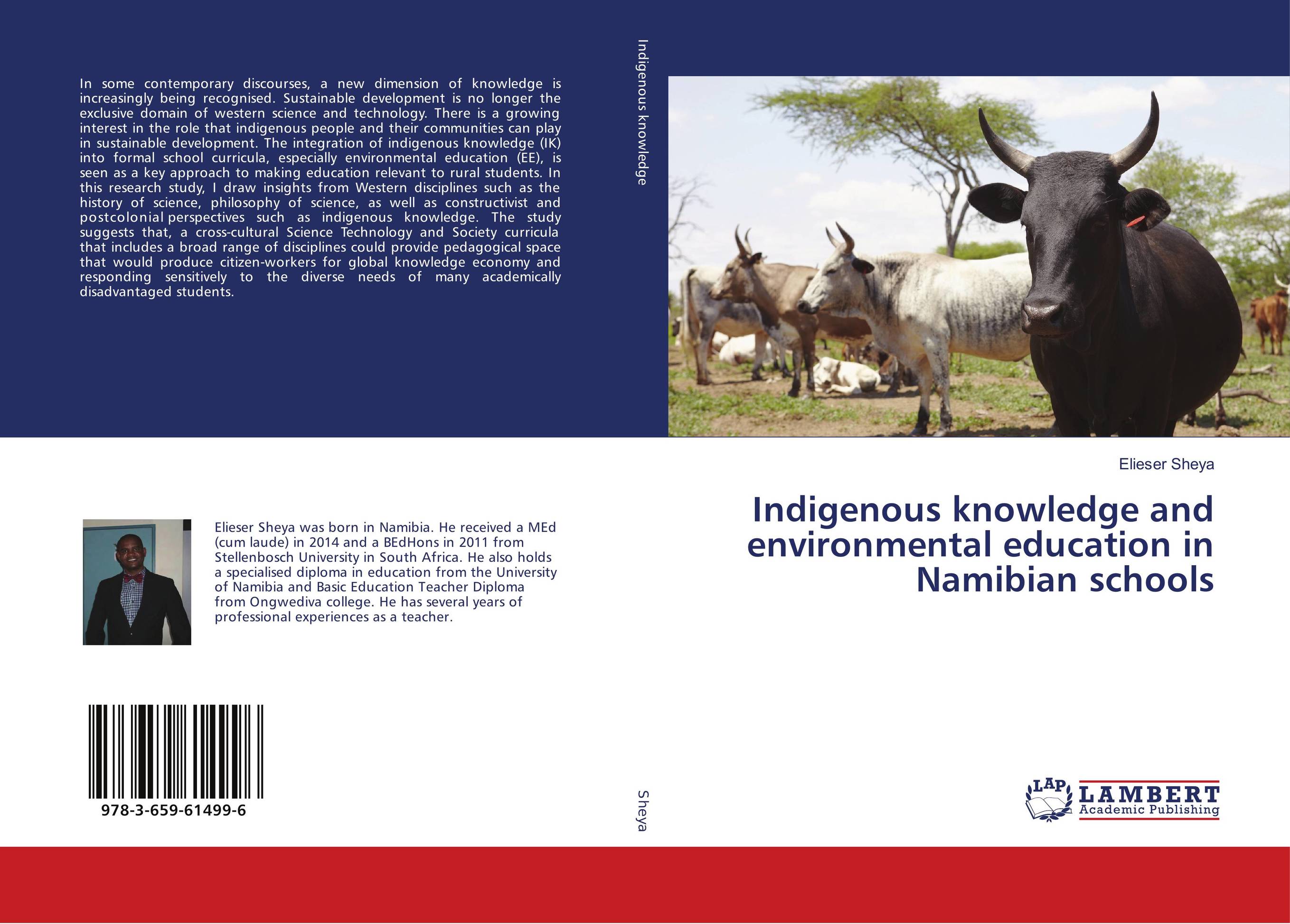| Поиск по каталогу |
|
(строгое соответствие)
|
- Профессиональная
- Научно-популярная
- Художественная
- Публицистика
- Детская
- Искусство
- Хобби, семья, дом
- Спорт
- Путеводители
- Блокноты, тетради, открытки
Indigenous knowledge and environmental education in Namibian schools.

В наличии
| Местонахождение: Алматы | Состояние экземпляра: новый |

Бумажная
версия
версия
Автор: Elieser Sheya
ISBN: 9783659614996
Год издания: 2018
Формат книги: 60×90/16 (145×215 мм)
Количество страниц: 188
Издательство: LAP LAMBERT Academic Publishing
Цена: 43243 тг
Положить в корзину
Позиции в рубрикаторе
Сферы деятельности:Код товара: 211658
| Способы доставки в город Алматы * комплектация (срок до отгрузки) не более 2 рабочих дней |
| Самовывоз из города Алматы (пункты самовывоза партнёра CDEK) |
| Курьерская доставка CDEK из города Москва |
| Доставка Почтой России из города Москва |
Аннотация: In some contemporary discourses, a new dimension of knowledge is increasingly being recognised. Sustainable development is no longer the exclusive domain of western science and technology. There is a growing interest in the role that indigenous people and their communities can play in sustainable development. The integration of indigenous knowledge (IK) into formal school curricula, especially environmental education (EE), is seen as a key approach to making education relevant to rural students. In this research study, I draw insights from Western disciplines such as the history of science, philosophy of science, as well as constructivist and postcolonial perspectives such as indigenous knowledge. The study suggests that, a cross-cultural Science Technology and Society curricula that includes a broad range of disciplines could provide pedagogical space that would produce citizen-workers for global knowledge economy and responding sensitively to the diverse needs of many academically disadvantaged students.
Ключевые слова: Indigenous knowledge, Environmental education, Namibia



